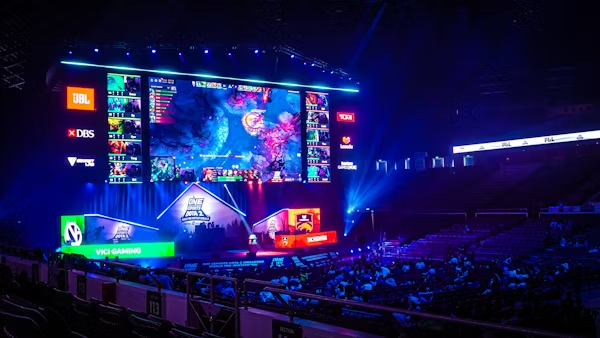In today’s rapidly changing gaming marketplace, developers and publishers are branching out beyond traditional game distribution channels. While app stores like Apple’s App Store and Google Play still dominate, alternative pathways are emerging that empower studios to reach their audience more directly. Platforms such as Xsolla’s game launcher platform are helping game creators navigate these new waters, offering solutions that enable seamless game delivery, player management, and monetization outside the standard app distribution giants.
The ability to distribute games directly to players or through curated alternative channels brings flexibility and increases revenue potential for developers. Innovative ecosystems are addressing common pain points of traditional app stores, such as high commission fees and restrictions on customer data access. By leveraging distribution platforms tailored for the gaming industry, developers can craft unique user experiences while remaining in control of their brand’s presentation and player relationship.
Exploring Alternative App Stores
Alternative app stores are rapidly gaining traction as viable options for game distribution. Free from the rules and revenue splits imposed by mainstream stores, these platforms can provide a welcoming space for indie studios and publishers looking for a more direct route to players. Notable examples include the Epic Games Store, itch.io, and the Amazon Appstore. Each alternative comes with its strengths, whether it’s a lower commission structure or a dedicated indie community. However, developers must balance these perks against smaller user pools and the additional effort required to manage and market across multiple platforms.
Understanding the distinct requirements of each alternative store is crucial. For instance, some may offer better discoverability for niche genres but lack the global reach of more established platforms. Creating tailored marketing materials and fostering a presence on each platform can boost both exposure and sales, especially when combined with robust community engagement efforts.
Embracing Cloud Gaming Platforms
Cloud gaming has upended the concept of gaming hardware, allowing users to stream high-quality games on demand. Services like NVIDIA GeForce NOW, Amazon Luna, and Google Stadia have made it possible for anyone with an internet connection to play resource-intensive titles without expensive PCs or consoles. This shift democratizes access and opens new markets for developers, especially in regions where gaming hardware is cost-prohibitive.
With cloud technology, developers no longer need to design games with hardware constraints in mind. Games can continually evolve, update seamlessly, and even attract audiences unfamiliar with dedicated gaming devices. According to a report by Vantage Market Research, the cloud gaming market is projected to reach $12.6 billion by 2028, highlighting its rapid ascent as a dominant force in game distribution.
Leveraging Blockchain for Decentralized Distribution
Blockchain technology is unlocking a new frontier in decentralized game distribution. With non-fungible tokens (NFTs), players gain verifiable ownership of in-game assets, enabling real economies where users buy, trade, and retain full control over their digital goods. Companies like Reaktor Arcade and Mythical Games are experimenting with blockchain-powered ecosystems that promote transparency, security, and developer-player collaboration.
This model goes beyond distribution, as it redefines value creation within gaming. Players can participate in open marketplaces, while studios generate new streams of revenue through the creation of unique items and collectibles. Additionally, blockchain helps combat piracy and ensures authenticity in asset ownership, strengthening player trust and engagement.
Adopting Subscription-Based Models
Subscription models such as Xbox Game Pass, PlayStation Now, and Apple Arcade are reshaping traditional buying habits. Instead of purchasing individual games, subscribers pay a monthly fee to access a vast and ever-rotating library. This model encourages curiosity and discovery; players can try new genres and studios without committing to high upfront costs. For developers, inclusion in a popular subscription service means predictable revenue and instant exposure to millions of potential fans.
The shift towards subscriptions also supports ongoing engagement. Continuous updates, exclusive content drops, and the sense of community fostered by these services keep players returning. According to The Verge, subscriptions now play a pivotal role in shaping gaming’s future, driving not only player retention but also new models of monetization and discovery.
Integrating Social Media and Streaming Platforms
Social media and live streaming platforms are central to modern game promotion and distribution. Platforms such as Facebook Gaming, Discord, Twitch, and YouTube Gaming offer spaces where developers can connect directly with their audience. Streaming, in particular, is an invaluable tool; live playthroughs, interactive Q&As, and influencer partnerships generate buzz while providing real-time feedback on new releases or features.
Building active communities and maintaining a continuous presence across these platforms multiplies a game’s discoverability and keeps engagement high. Seamless integration of shareable content and community-driven events turns players themselves into some of the most effective voices in spreading the word about new titles and updates.
Conclusion
The landscape of game distribution is evolving faster than ever before, as developers and publishers rethink how to reach and grow their player bases in an increasingly competitive environment. By leveraging a variety of tools such as alternative app stores, harnessing the power of cloud computing capabilities, embracing innovative blockchain-powered models, adopting diverse subscription services, and seamlessly integrating social media strategies, game creators can break free from traditional limitations and continuously innovate in ways that are both engaging and highly profitable. Staying agile, adaptable, and open to change is absolutely essential for success in this highly dynamic and rapidly changing industry.

